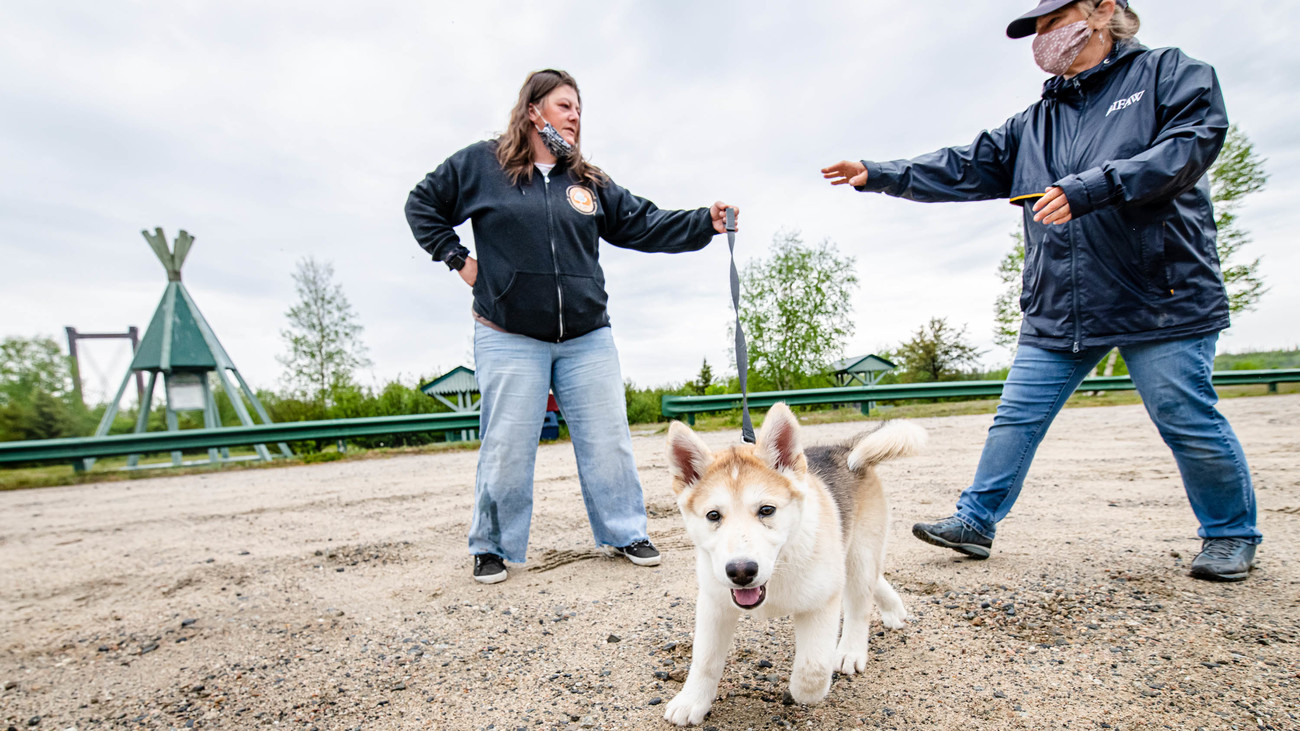Northern Dogs Project - Canada
Distance can’t get in the way of safeguarding dogsthis National Day for Truth and Reconciliation, community continues to be critical for our Northern Dogs Project
this National Day for Truth and Reconciliation, community continues to be critical for our Northern Dogs Project

Since 2001, IFAW’s work with local Indigenous communities has reflected the interconnectedness between dog health and overall community wellness. This critical work would not have been possible without the building of trust with the Indigenous people of that community over the better part of two decades, and the proactive response the community has shown in response to IFAW’s efforts to improve the wellbeing of their animals.
Community support creates sustainable impact
Dogs have always been part of Indigenous culture in Canada. IFAW’s Northern Dogs Project strives to understand the context and culture of each community and the way dogs fit into it. We understand that community members benefit when we have the appropriate knowledge, experience and resources to meet their realities. And we understand that our work exists within the ongoing impacts of colonialism and the resulting intergenerational trauma. It is critical to keep this perspective in mind when driving animal welfare in both the short and long-term.
A fundamental component of achieving long-term welfare for community dogs has been providing annual vet clinics every spring, where owners can access services including spay/neutering, vaccinations and deworming. When dog health and welfare improve, so does community health and safety. Over the years we have dealt with porcupine quills, diaphragmatic hernias, injuries from vehicle strikes, vaccine reactions, tumor removals, broken legs, and emergency cesarean section—to name just a few. Providing not only medical care, but also the time and dedication needed to assist communities to deal with such situations as they arise and how to improve the overall safety and welfare of their animals. This has created relationships that have lasted decades. Through working directly with the Indigenous people while also respecting their history and knowledge of their dogs, we have improved each dog’s health and helped keep the size of the overall dog population in check.
Moving forward with plans after COVID
The Northern Dogs Project has always assisted First Nations communities to develop humane dog management programs that are unique to the challenges of their particular community. Sadly, it has been seven hundred and sixty days—over two years—since the Northern Dogs Project has been able to provide veterinary services to our partner communities in Canada due to the devastation caused by Covid-19. This has certainly been a difficult time for communities and community members on many different levels. While IFAW stepped up by community invitation to rehome dogs who were relinquished by their owners, running a comprehensive dog management program that targets the root causes of dog problems, not just the symptoms, requires the use of multiple tools and approaches. None of this would have been achievable without support from the local community. We look forward to being able to return to with the veterinarian team in the spring where we will spay and neuter up to 40 dogs a day, vaccinate over a 100 dogs a day, and speak again to all the dog owners we have missed since our last visit. It has been too long and we are eager to begin this critical work again. Not alone, but together with the Indigenous people of the local community, without whom none of this would be possible.
-Jan Hannah, IFAW Northern Dogs Project, Canada
Related content
Every problem has a solution, every solution needs support.
The problems we face are urgent, complicated, and resistant to change. Real solutions demand creativity, hard work, and involvement from people like you.